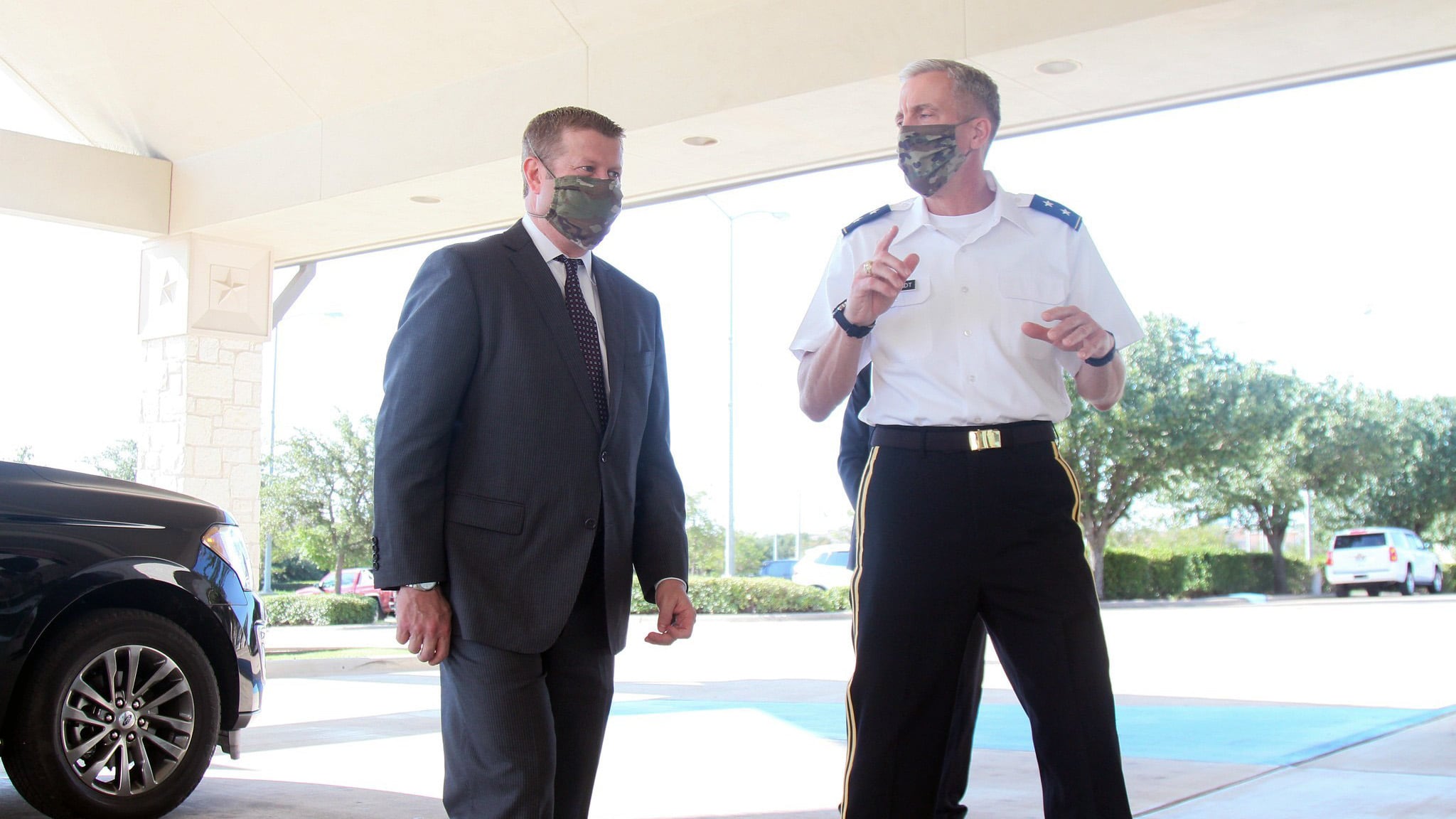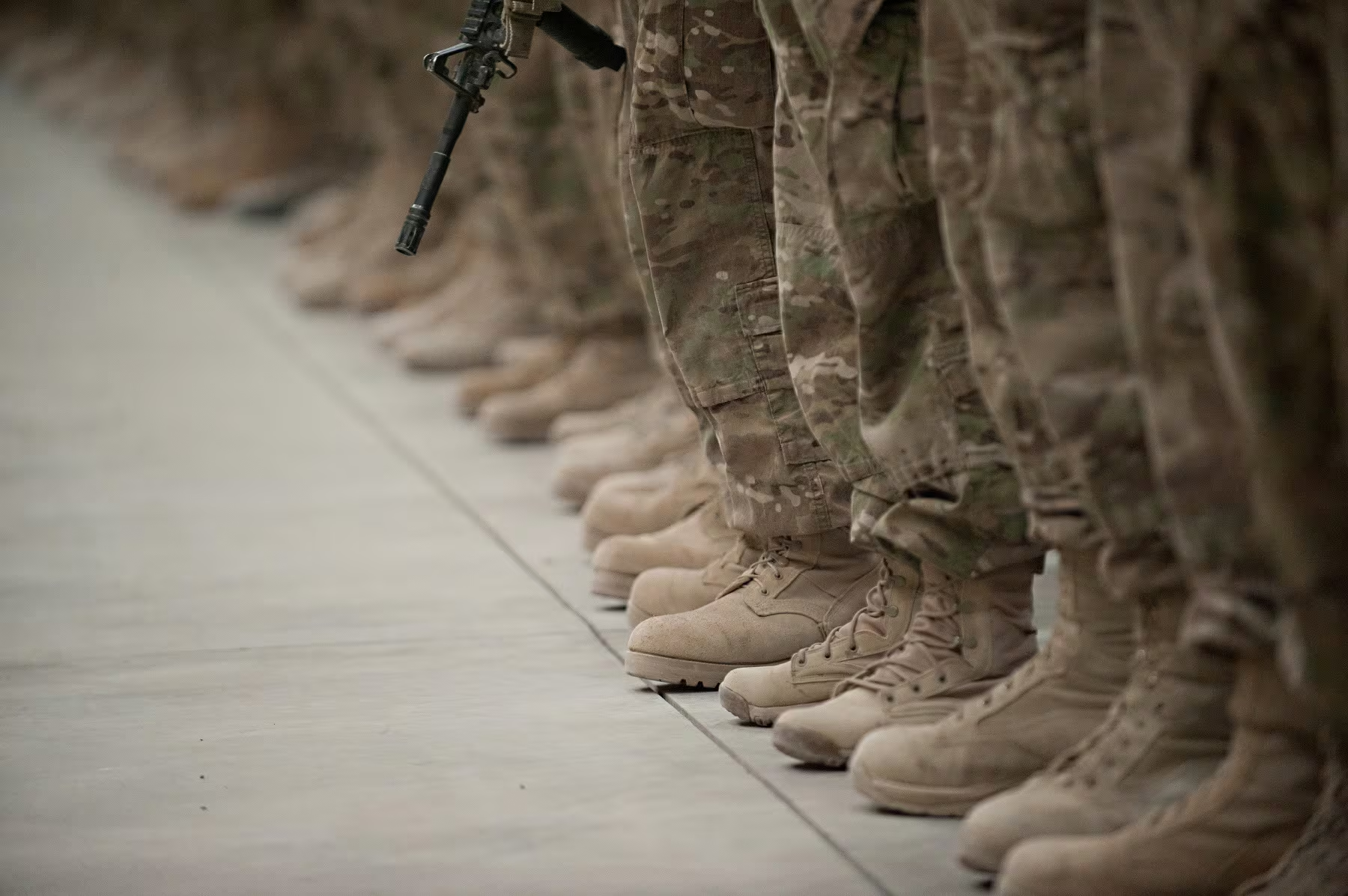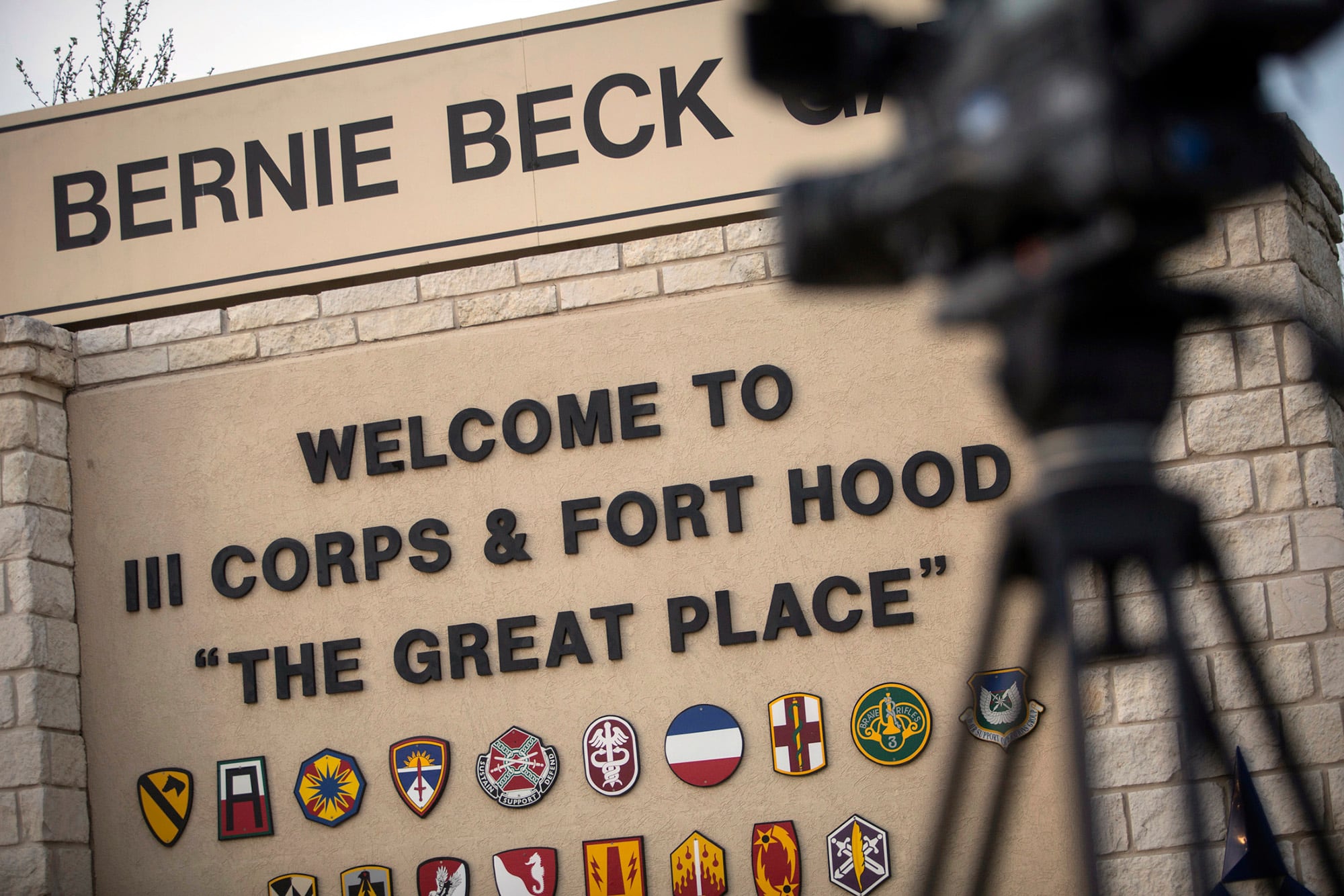A congressional investigation into a spate of recent soldier deaths at Fort Hood was announced Monday, adding yet another inquiry into how the central Texas installation has handled several missing persons cases and five deaths this year involving foul play.
The chairs of two House panels sent a letter dated Sept. 8 to Army Secretary Ryan McCarthy requesting documents and information concerning soldier deaths going back to the beginning of 2019.
In it, Rep. Stephen Lynch, chairman of the Oversight and Reform national security subcommittee, and Rep. Jackie Speier, chairwoman of the Armed Services' military personnel subcommittee, wrote that the two panels will jointly investigate “whether an alarming pattern” of recent deaths may be “symptomatic of underlying leadership, discipline, and morale deficiencies throughout the chain-of-command.”
The congressional investigation comes after the Army announced last week that Army Futures Command boss Gen. John Murray will lead an in-depth investigation into the actions taken by Fort Hood’s chain of command following the disappearance of Spc. Vanessa Guillen, a Fort Hood soldier who prosecutors say was murdered in an armory and then dismembered by a fellow soldier.
Murray’s Army Regulation 15-6 investigation is separate from an independent review of Fort Hood that began in August and is looking at the command climate and the surrounding city of Killeen. A fourth inquiry by the Government Accountability Office is reviewing the Sexual Harassment/Assault Response and Prevention Program across the Army.
RELATED

The letter sent Monday acknowledged the Army’s ongoing investigations but stated that Congress’ oversight is still needed.
Three soldiers have gone missing from Fort Hood this year, only to be found deceased. One soldier, Pvt. Gregory Wedel-Morales, was found dead miles from post in June after he went missing in August 2019. Police have said they suspect foul play to be involved.
Three other deaths have also been investigated as homicides, with the cases of Spc. Freddy Delacruz Jr. and Pfc. Brandon S. Rosecrans, being solved, according to local police.
“Families of missing Fort Hood soldiers have expressed anguish and frustration about the Army’s response to the disappearance of their loved ones and the dearth of information about the status of the Army’s investigations,” the chairs wrote.
“For example, according to the mother of Private Wedel-Morales, she has ’fought from Day One’ with Army investigators who originally and erroneously determined that her son was absent without authorized leave,” they added, citing an Army Times report that interviewed Morales’ mother.
RELATED

Guillen, whose death has been the most widely covered by national media, and another soldier, Sgt. Elder Fernandes, were allegedly sexually harassed or abused prior to their deaths, their letter noted.
“An attorney for the family of Sergeant Fernandes claims that he was ’bullied’ and ’hazed’ by his peers after he reported his harassment, while Specialist Guillen reportedly was too afraid of retribution to file a formal complaint,” the letter reads.
The letter asked for all documents, including medical records and communications between Fort Hood leaders and law enforcement, related to any sexual assault or harassment allegations made by the soldiers who went missing. Investigative files and communications pertaining to the other soldiers’ cases were also requested.
The chairs said in their letter that they also seek to obtain all surveys of the command climate on Fort Hood and timelines detailing how and when post leaders responded to the incidents and allegations as they arose.
During a visit to Fort Hood in early August, the Army secretary acknowledged that the numbers of certain violent crimes are high at the installation.
“They are the highest, in most cases, for sexual assault and harassment and murders for our entire formation — the U.S. Army,” McCarthy said when speaking with reporters.
According to the Army, between 2014 and 2019, there were an average of 129 felonies committed annually at Fort Hood, including cases of homicide, sexual assault, kidnapping, robbery and aggravated assault.
Kyle Rempfer was an editor and reporter who has covered combat operations, criminal cases, foreign military assistance and training accidents. Before entering journalism, Kyle served in U.S. Air Force Special Tactics and deployed in 2014 to Paktika Province, Afghanistan, and Baghdad, Iraq.




